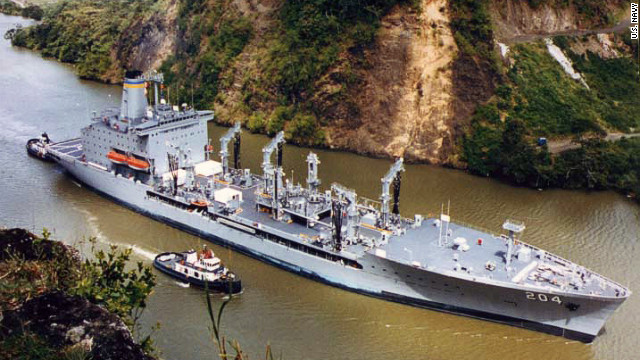Well, I Guess They Know Now
By Jeffrey Goldberg
Jul 15 2012, 12:42 PM ET From The Los Angeles Times:
WASHINGTON -- The Navy is rushing tiny underwater drones to the Persian Gulf to help find and destroy sea mines as part of an American military buildup aimed at stopping Iran from closing the strategic Strait of Hormuz in the event of a crisis, U.S. officials said.
So far, so good. American officials are providing The Los Angeles Times with information suggesting that U.S. Central Command, which is responsible for American security in the Persian Gulf, is deploying a new defensive weapon. I can understand why some officials might want to keep this secret -- why tell the Iranians what we're doing? -- but obviously a decision was made to let the Iranians know just what they're up against as a way to dissuade them from carrying out any sort of sea mine-related hijinks.
But then, a bit further down in the story, comes this:
The Obama administration previously sent two aircraft carriers and a squadron of F-22 fighter jets to the region and is keeping two Army brigades in Kuwait. The Pentagon has acknowledged those deployments, but has not publicly disclosed sending underwater drones, apparently to avoid alerting Iran.
Now sets in confusion. These two paragraphs should not be cohabitating within the same article. Some U.S. officials obviously want Iran to know about these underwater drones; otherwise, they wouldn't have told The Los Angeles Times about them. But are these officials operating counter to the interests of the Pentagon, which, the story tells us, wanted to keep the existence of these underwater drones secret, to avoid alerting Iran? The story provides no answers to these questions, nor does it even attempt to explore this obvious contradiction. Did someone in the American government just leak secret information against the wishes of the Pentagon? This is not journalism that illuminates.




 Reply With Quote
Reply With Quote



 SUBMARINE SCAM: Former head of Dubai World's submarine unit embezzled AED14m from the company. (Getty Images, for illustrative purposes only)
SUBMARINE SCAM: Former head of Dubai World's submarine unit embezzled AED14m from the company. (Getty Images, for illustrative purposes only)













Bookmarks